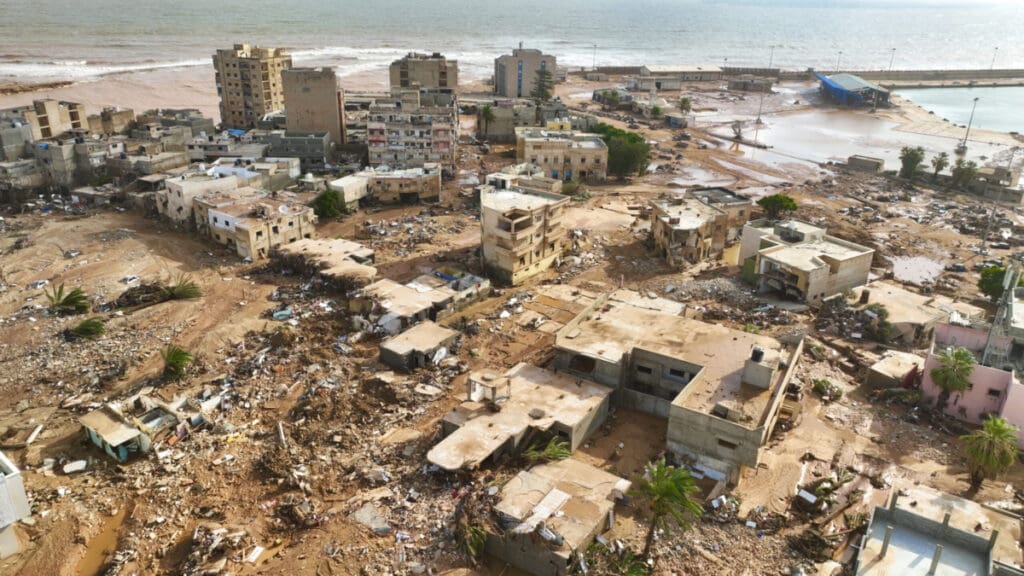WFP Rolls out Food Assistance to Families Affected by Storm Daniel in Libya

CAIRO – The United Nations World Food Programme (WFP) has begun providing desperately needed food assistance to more than 5,000 families displaced by massive flooding in Libya. Entire neighborhoods in the city of Derna have disappeared, along with many of their residents, after floodwaters from Storm Daniel caused two aging dams to collapse.
On Tuesday, food distributions through the U.N. World Food Programme’s partner LibAid had already reached 2,000 people who had fled Derna and arrived in the city of Benghazi. On Wednesday, the U.N. World Food Programme distributed food to about 700 flood-affected families in four locations of Derna city.
“These devastating floods have struck in a country where a profound political crisis has already left so many in a desperate situation. Alongside the tragic loss of life, thousands of families in Derna are now without food or shelter. The U.N. World Food Programme is on the ground, supporting local efforts and providing assistance to the most vulnerable people as they try to get back on their feet,” said U.N. World Food Programme Executive Director Cindy McCain.
The floodwaters have damaged critical infrastructure including roads, bridges, and water supply systems, exacerbating the humanitarian situation. It is estimated that tens of thousands of people have been displaced by the storm and subsequent flooding.
The U.N. World Food Programme is part of the Libya Rapid Response Mechanism (RRM), which brings together local partners and United Nations agencies, and ensures the quick access needed to provide assistance within 72 hours of a disaster. The U.N. World Food Programme is working closely with local authorities and United Nations partners. The U.N. World Food Programme’s planned emergency operation will aim to provide monthly food assistance to 100,000 people in flood-affected areas for three months.
The U.N. World Food Programme is grateful to donors like Japan and Switzerland who provided the funds that allowed the U.N. World Food Programme to preposition the food stocks which were immediately mobilized for the initial crisis response.
The U.N. World Food Programme’s work in Libya is not limited to the current crisis. The organization already supports over 52,000 people – internally displaced people, returnees, and migrants in urban areas – through food assistance and cash grants. Additionally, the U.N. World Food Programme collaborates with the government on resilience-building activities such as school meals. By providing ongoing assistance and implementing long-term measures, the U.N. World Food Programme strives to address the multifaceted challenges faced by vulnerable communities in Libya.
# # #
The United Nations World Food Programme is the 2020 Nobel Peace Prize Laureate and the world’s leading humanitarian organization, saving lives in emergencies and using food assistance to build a pathway to peace, stability and prosperity for people recovering from conflict, disasters and the impact of climate change.
Follow us on Twitter @WFPUSA, @wfp_media and @wfp_mena




